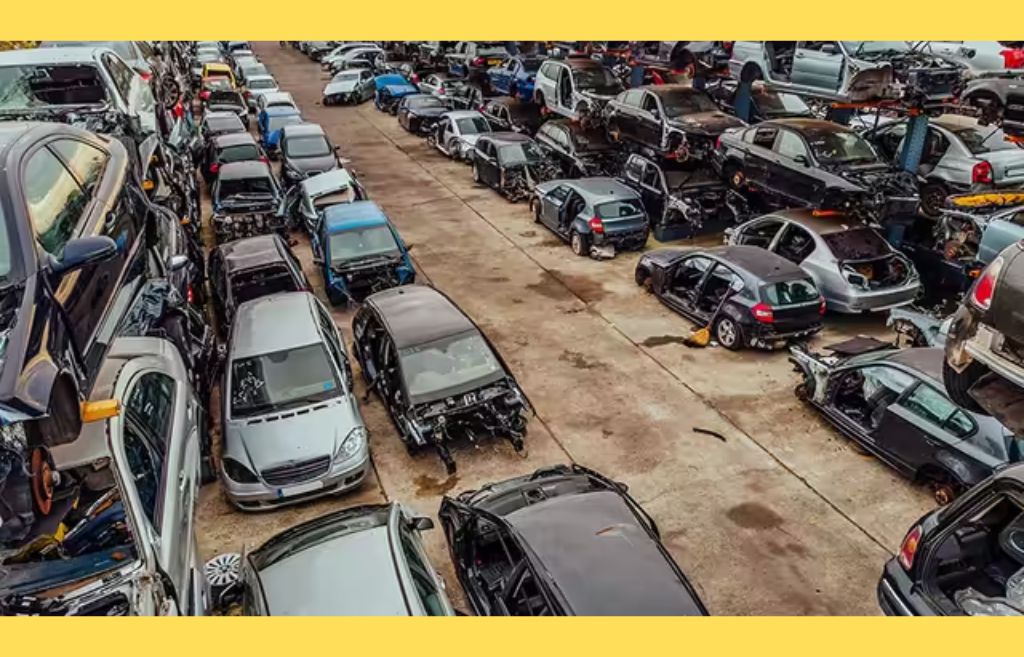Vehicle ownership and disposal are influenced by cultural beliefs and economic factors, shaping how different societies perceive the role of cars in their lives. While some view cars as symbols of personal freedom and social status, others focus on vehicles as practical assets subject to strict usage guidelines. As global awareness of environmental concerns grows, cultural attitudes toward vehicle disposal have also evolved, making way for sustainable practices in car recycling and disposal. This article examines how cultural perspectives impact vehicle ownership, the tendency toward long-term or short-term car use, and the approach to car disposal.
The Symbolic Role of Vehicles in Different Cultures
In many societies, cars are far more than mere modes of transportation; they hold symbolic meaning tied to personal status, wealth, and independence. In Western cultures, especially in countries like the United States, owning a car is often considered essential for personal freedom and mobility. This view drives a preference for privately owned vehicles and an expectation of convenience and individual autonomy. Conversely, in countries where public transportation is highly accessible and efficient, such as Japan and parts of Europe, the cultural emphasis on car ownership is less intense. Instead, public and shared transportation options often fulfill the need for mobility, reducing the perceived necessity of owning a vehicle.
Some cultures associate cars with wealth and success, influencing how people approach ownership and the desire to maintain vehicles in pristine condition. In certain Middle Eastern and Asian societies, luxury vehicles are viewed as status symbols, often leading owners to keep cars for long periods to avoid the depreciation of highly valued assets. These attitudes significantly impact how long people own their vehicles and how they approach disposal when the car’s life reaches its end.
Environmental Awareness and Its Impact on Car Ownership
Environmental awareness is an increasingly influential factor in vehicle ownership and disposal practices worldwide. Societies that emphasize environmental stewardship, such as those in Scandinavia, are more inclined toward environmentally conscious choices when it comes to car usage and disposal. Countries like Norway, where there is a strong commitment to sustainability, have adopted widespread electric vehicle use, and there are incentives for recycling and scrapping vehicles in eco-friendly ways. The collective awareness of environmental impact has created a culture where vehicle disposal is seen as a necessary step in reducing waste and promoting a circular economy.
In contrast, regions where environmental concerns are less pronounced may lack structured programs for vehicle recycling, leading to different disposal practices. For instance, some developing nations still rely heavily on traditional disposal methods, and the recycling infrastructure may be underdeveloped or even absent. However, as awareness spreads globally, more countries are beginning to adopt sustainable practices, encouraged by the visible impact of eco-friendly car disposal on reducing pollution and conserving resources.
Economic Factors and Disposal Trends
Economic conditions strongly influence cultural attitudes toward vehicle disposal. In economies where cars are expensive to purchase and maintain, people are likely to keep their vehicles for extended periods. For example, in parts of South America, where new cars are costly, owners may prioritize repairs and maintenance over disposal, valuing durability and long-term use. Similarly, in India, the secondary market for cars is robust, with many people opting for used cars over new ones, prolonging the lifespan of vehicles and reducing the rate of disposal.
On the other hand, in more affluent regions, disposable income often leads to a faster rate of vehicle replacement. North America and parts of Europe exhibit trends of frequent upgrades, with people purchasing new cars as a lifestyle choice rather than out of necessity. This high turnover contributes to a steady flow of vehicles into scrapyards, creating a need for efficient recycling systems to handle the surplus of end-of-life cars. The availability of programs like trade-ins and cash-for-cars services also encourages owners to dispose of their vehicles sooner.
Role of Cash-for-Cars and Junkyards in Disposal Practices
In regions where vehicle disposal is a common practice, cash-for-cars programs and junkyards play a crucial role in managing end-of-life vehicles. These services simplify the disposal process and offer car owners financial incentives for parting with their old cars. By providing options to sell vehicles quickly and responsibly, these programs contribute significantly to recycling efforts and reducing waste in landfills. Junkyards have established processes for extracting valuable parts and materials, which not only conserves resources but also reduces the need for new raw materials in the automotive industry.
Promoting Responsible Disposal in Sydney
In Sydney, the cash-for-cars industry is making strides in promoting responsible vehicle disposal by offering sustainable solutions for end-of-life vehicles. Companies like Total Car Removal lead the way in ensuring that vehicles are disposed of in an environmentally conscious manner. By choosing a service such as Total Car Removal, residents can benefit from a streamlined process that prioritizes eco-friendly recycling methods. With a commitment to reducing landfill waste, the company helps car owners contribute to a cleaner, greener environment while providing financial rewards. This approach to car disposal highlights why cash for unwanted cars Sydney services are increasingly popular, aligning with both economic incentives and environmental responsibility.
Technological Advancements and Changing Disposal Practices
Technological advancements in vehicle manufacturing and recycling have reshaped cultural attitudes toward vehicle disposal. With modern cars now built to last longer and withstand extensive wear and tear, people are more inclined to hold onto vehicles longer. Additionally, technology has enhanced the recycling industry, allowing junkyards to recover a higher percentage of reusable materials from each vehicle. Innovations in battery recycling, for instance, have addressed the environmental concerns surrounding electric vehicle disposal, further encouraging sustainable practices.
Technological progress has also enabled consumers to make informed choices regarding disposal, with many opting for environmentally sound options over traditional methods. Online platforms and increased transparency have empowered car owners to select services that align with their values, ensuring that vehicles are recycled in an eco-friendly manner. This shift underscores the importance of technology in influencing disposal decisions and highlights the growing relevance of responsible recycling options.
Also visit: https://totalcarremoval.com.au/cash-for-cars-sydney/
Conclusion
Cultural perspectives on vehicle ownership and disposal are shaped by a complex interplay of economic, social, and environmental factors. While some societies view vehicles as essential assets tied to status and mobility, others prioritize sustainable practices that mitigate environmental impact. As environmental awareness spreads and technological advancements improve disposal methods, societies worldwide are gradually shifting toward more sustainable approaches to vehicle disposal. Programs like cash-for-cars and specialized junkyards continue to bridge the gap, offering practical solutions for responsible vehicle disposal while meeting the diverse needs of consumers.
The global shift toward eco-friendly car disposal is likely to persist as cultural attitudes evolve and environmental concerns take precedence. By fostering a culture of recycling and responsible disposal, societies can reduce waste, conserve valuable resources, and make meaningful contributions to a sustainable future.
Discover related articles on our blog.




